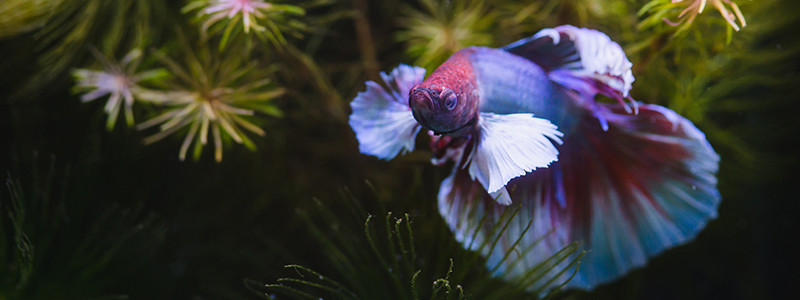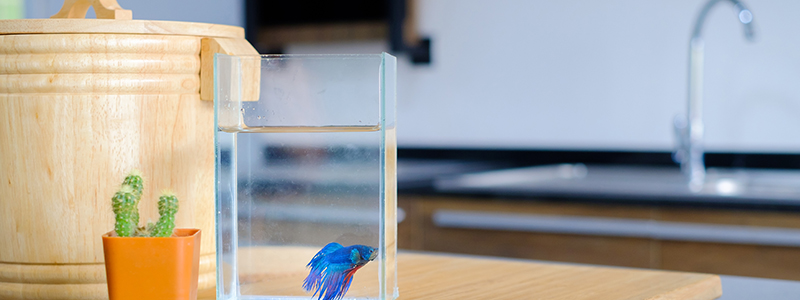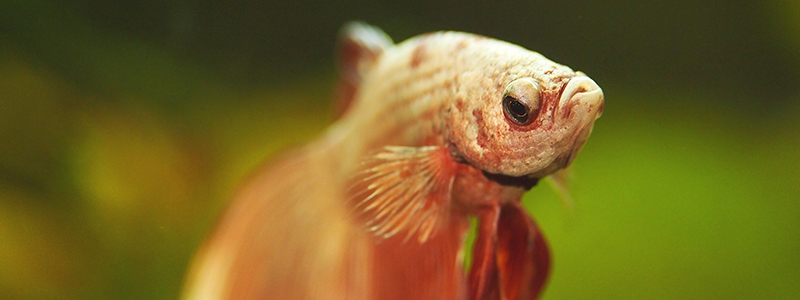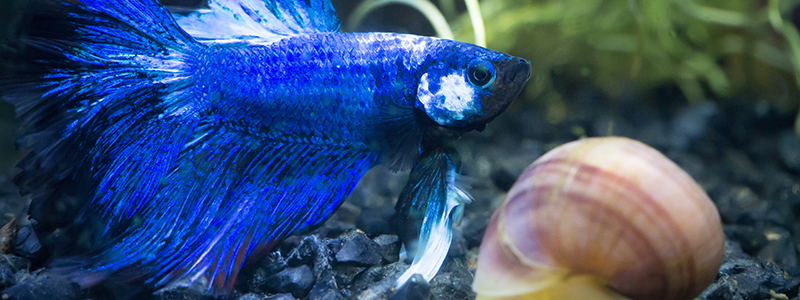Fish living in water is a well-known fact and part of what makes a fish, well, a fish. Still, there are actually quite a few different requirements that must be met by the water you use in your tank if you want to keep your fish feeling healthy and happy.
Plain tap water is not the most optimal option for your Betta to live in.
There are some options that are safe and cost-effective like water conditioners and spring water as well as sketchy and outright unsafe products such as “Betta water” that you should pass on entirely. Let’s navigate these waters and figure out what works best for you and your unique setup!
1. The Problem with Tap Water for Bettas
Tap water, at least in most of the modern world, is the water that comes from the taps or faucets within your home. Many people drink this water and use it for daily tasks like cooking, cleaning, and bathing. Unfortunately, the processes used to make it safe for human usage also tend to make it unsafe to use in a fish tank.
Many places, for example, add chlorine to the water to remove impurities and bacteria. While this helps prevent humans from becoming sick or developing parasitic infections, chlorine makes the water inhabitable for most fish species since their bodies cannot effectively process the chemical.
Fortunately, there are plenty of other options for your Betta, so you do not have to look very far to find a suitable replacement for straight tap water in your aquariums.
Water Conditioners Can Help
If you plan on using tap water in your tanks, all you need to do is condition it first. There are countless products on the market that work to remove chlorine, minerals, and heavy metals from the water, making it safe for your fish to live in.
These products can be very inexpensive and usually have clear labeling to direct you as to what you should do to use the product with your given water supply. Generally, you add the specified amount to the stated gallons and allow it to sit for a bit to let the additive remove harmful substances before pouring it into your tank.
A product I personally recommend and use is Prime. It has never let me down for the time I’ve been using it.
2. Distilled Water
This one seems rather obvious, but unfortunately, using distilled water in a Betta tank is a big no-no. Distilled water is often marketed as a purified, better than tap water alternative and while this may be true for humans, Bettas actually can be harmed by this extra precaution.
Distilled water is stripped of almost all of its mineral content, meaning that the minerals that Bettas need to have access to are removed as well. This can lead to deficiencies in the water which can make your Betta more susceptible to health issues and parasites. In some cases, deficiencies can even prove to be fatal.
3. Spring Water
Springwater, or traditional bottled water, is a type of water processed without the chlorine and heavy metals of traditional tap water but not stripped of all of the nutrients and minerals that fish need. This is perhaps one of the easiest, healthiest options available if you can swing the price.
Generally, you can get a large bottle for a couple of dollars at any supermarket. Just be sure to check the pH of your water before introducing it into your tank since different processing systems exist across different brands, which could cause a fluctuation in the pH of a given product.
If your spring water tests high or low, you can simply use pH adjusting treatments to get it to the correct levels. These are usually rather inexpensive and can be picked up at most major pet stores with ease. Some bigger retail stores like Wal-Mart may have them as well, though not all will stock them fully if they are not in high demand.
4. “Betta Water”
Betta Water, as it is marketed, is perhaps the ultimate scam produced for beginner Betta keepers. You can find these bottled waters on the shelves of big-name pet stores.
Claiming to be things like “super oxygenated”, “additive-free”, and a “one-step water change”, these are not only misleading claims but also outright dangerous and misleading. Let’s take a look at why you should pass on the Betta Water and stick to conditioning your own.
First, let’s address the cost and packaging size implications. Betta Water is typically sold in one liter or one-gallon bottles. You will rarely find anything larger than this, as it plays into the old, “Bettas only need a gallon or so of water to live” myth that has been dispelled time and time again.
Bettas actually need five gallons or more, with more being better. Because of the lower water volume, lower gallon tanks actually stress your fish and expose them to higher ammonia levels unless maintained extremely carefully, making it more likely for them to get sick.
On top of this, Betta Water usually costs between four and eight dollars per bottle. For reference, you can get upwards of twenty gallons or more for around three dollars with a bottle of conditioner. Literally twenty times the amount of water for just three dollars more.
The super oxygenated claim is an absolute joke. Water has an oxygen threshold, meaning that once it reaches a certain point of saturation it will simply release excess oxygen back into the air. There is literally no such thing as super oxygenation.
The additive-free claims are viable as long as the ingredient lists match up, but there is no such thing as a one-step water change. You should always take care to check the temperature and your tank’s ammonia levels and such when doing a water change. You cannot just dump in a bottle of water and call it a day; your fish is much more likely to get sick if you are not performing proper tank maintenance.
Skip the Betta Water and save your money for other aspects of your tank. Your tap water paired with proper conditioning will be just fine.
5. Well Water
While it may seem safer to use well water than tap water, you would be surprised at the chemical levels that can be found in the well. Pesticides and other harmful chemicals can easily be introduced into the well water, which can, in turn, do serious harm to your Betta.
Due to this, it may be safer to actually use tap water and water conditioners instead of well water since the chemicals introduced to the water will be a little more predictable and you can generally test your water more easily if you have a good idea of its baseline content.

6. Rain Water
While it may make sense for you to use rainwater in your tank since it is the purest variation of water available, there are still some things to take into account before plopping your fish into a tank of water straight from the sky.
Some fish can do well with the low acid levels and softness of the water from rain but some need the extra acidity that comes with tap water and other comparable sources.
Due to this, if you want to try using rainwater, it is a good idea to use twenty-five percent rainwater to seventy-five percent of whatever water you usually use in your tank. If your fish handles this well, try transitioning to a bit more rainwater next time you do a change, gradually adding more and more.
Rainwater in the United States does not typically contain airborne pesticides but in other countries, this may not be the case. Due to this, it is important to do a water quality check to ensure nothing has polluted your water supply.
Also, it is smart to collect your water in a clean glass or plastic dish that is not exposed to any chemicals or additives before or during the water collection process. This will help prevent metal or biological contaminants from leaching into the water, making it unsuitable for usage.
7. Boiled Water
There is a running myth that boiling water removes all of the toxins and bacteria. While it can kill off bacteria, there are many factors that make water that has simply been boiled not suitable for usage in Betta aquariums or fish tanks in general.
For starters, boiled water likely still contains chlorine. Chlorine requires quite a bit more than just simply boiling the liquid it is housed in to remove it. Chlorine is a chemical compound that binds to other compounds in water, meaning it is actually a difficult substance to remove with mechanical means alone.
Secondly, boiling water can also concentrate the mineral content in the water, which can be particularly harmful to fish, especially Bettas. In fact, the only scientifically credited method of removing chloramines without concentrating on other non-volatile minerals is through using water conditioners, like those mentioned above.
Conclusion
While not safe on its own, tap water can work well in a Betta aquarium if it is treated with a water conditioning chemical blend. Other options like spring water are also viable but it is important that you take the necessary steps in testing your water before adding it to the tank to ensure no damaging effects occur.





